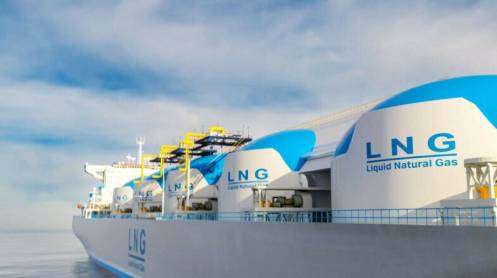ISLAMABAD: The Petroleum Division has asked the Power Division to present a firm plan for lifting Regasified Liquefied Natural Gas (RLNG) at a rate of Rs2,000 per MMBTU, as part of the government’s broader initiative to reduce mounting “take-or-pay” liabilities from LNG import contracts. The move aligns with Islamabad’s ongoing efforts to rationalize capacity payments to both Independent Power Producers (IPPs) and government-owned plants.
Sources in the Petroleum Division told Business Recorder that concerns have intensified over the forced shutdown of domestic gas fields to accommodate surplus, high-cost RLNG, especially in sectors such as residential and industrial consumers. Power plants, meanwhile, have been unable to fully utilize their RLNG allocations due to subdued electricity demand and constraints under the National Power Control Centre’s (NPCC) Economic Merit Order (EMO).
A senior Power Division official admitted that take-or-pay LNG commitments have become a significant financial burden, emphasizing that steps are being taken to mitigate these obligations in line with strategies applied to capacity payments.
In light of weak domestic demand—largely due to soaring RLNG prices—the government has diverted several LNG cargoes to the spot market and sought rescheduling of others with Qatar. The SNGPL network, sources said, is facing line-pack pressure from underutilized gas supplies.
In an official letter, Deputy Director (NG-III) Hussain Mubashir of the Petroleum Division urged the Power Division to specify the RLNG volumes it can reliably lift at Rs2,000/MMBTU. “The Power Division should also share any alternate price levels that could ensure higher off-take, facilitating better planning and supply optimization,” the correspondence stated.
Petroleum Minister Ali Pervaiz Malik has categorically opposed suggestions to terminate Pakistan’s long-term LNG contract with Qatar, underscoring that Islamabad highly values its strategic relationship with Doha. He clarified that while price renegotiations may be explored, they should not be misinterpreted as willingness to reduce contracted volumes.
During his visit to Qatar in late August 2025, the minister discussed options to reschedule LNG cargoes to ease the financial strain on Pakistan State Oil (PSO). Prior to the visit, preliminary proposals had surfaced to revisit the Qatar LNG deal amid persistently low RLNG offtake by the power sector, sparking friction between the Petroleum and Power Divisions.
At a recent meeting of the Committee on Structural Reforms in the Petroleum Sector, chaired by Minister Malik, Power Planning and Monitoring Company (PPMC) representative Naveed Qaiser presented a comparative analysis of Energy Purchase Prices (EPP) between imported coal and RLNG.
According to the analysis, the power sector currently consumes around 340 mmcfd of RLNG — a figure projected to decline to 175 mmcfd by 2031. Additional RLNG consumption was estimated at 174 mmcfd at Rs1,500/MMBTU, 127 mmcfd at Rs2,000/MMBTU, and 95 mmcfd at Rs2,209/MMBTU, depending on price competitiveness.
Story by Mushtaq Ghumman







